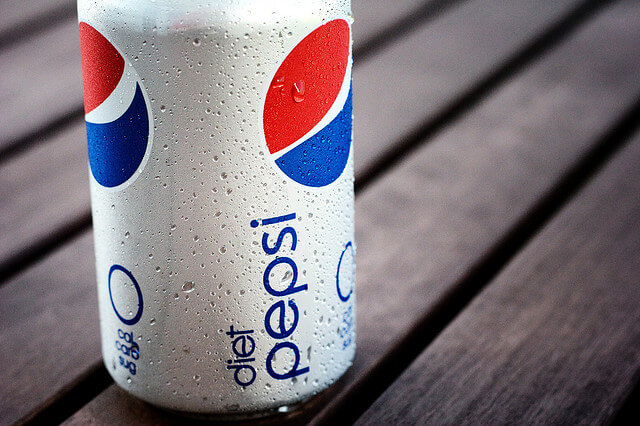How Bad Is Soda for Your Teeth?
We’ve all heard soda is bad for our teeth. But how bad is it really? Does it matter how often you drink it? Is diet soda better?
As a dentist, these are questions I hear a lot. I’ll answer all of them and more in this post.
First, let’s take a closer look at the ingredients in a typical can of soda.
What’s in Soda?
Most sodas contain carbonated water, a sweetener, natural or artificial flavoring, and sometimes artificial coloring.
From a dental perspective, the ingredients we’re most interested in are soda’s sweetener and carbonated water.
The sweetener could be sugar (as in traditional Coca-Cola), high-fructose corn syrup, or another sugar substitute (usually aspartame).
The carbonated water is what gives soda its refreshing, bubbly taste. Dissolved carbonic acid is what makes the drink carbonated, but many sodas contain other acids as well, which means soda is an extremely acidic drink.
Why Is Soda Bad for Your Teeth?
The reason soda is bad for dental health is its high levels of both sugar and acidity. Each of those factors individually isn’t great, but together they can be really destructive to teeth.
That’s because the bacteria in your mouth feed on sugar, and when they do, they also make acids. Too much acid in your mouth can eventually damage the enamel on your teeth, leaving your teeth vulnerable to tooth decay and cavities.
So, acid from soda + acid produced by sugar-eating bacteria = bad news for your mouth.
In fact, in the dental community we talk about "Mountain Dew mouth" the same way we talk about "meth mouth” (don’t Google it). In other words, damage from sodas like Mountain Dew can look very similar to damage from drug abuse. Both can produce rampant, deep decay in many or all teeth.
What About Diet Soda?
Many patients want to know if diet soda is less harmful than regular soda. It’s true, diet soda doesn’t have sugar, but it’s still very acidic. And ultimately, the acid is the most dangerous factor when it comes to your tooth enamel and overall oral health.
So, diet soda isn’t a good alternative to regular soda, because it’s still extremely acidic.
That might be bad news for diet soda lovers, but if you’re not ready to give up your favorite carbonated drink, keep reading. Later on I’ll give some advice for how minimize the damage without giving up soda altogether.
In fact, even fruit juice isn’t your best alternative to soda. They’re usually somewhat acidic and have a high sugar content too. Would you believe Mott’s Apple Juice has the same amount of sugar as classic Coke?
It’s Not Just Your Teeth
Having good oral health isn’t just about avoiding cavities and having a good smile. Poor oral health, and gum disease in particular, is linked with heart disease.
Also, when your gums or other mouth tissue gets infected, that puts a strain on your body and its immune system too.
Gum disease is a bacterial infection. If you think you have gum disease, make an appointment with your dentist right away so you can stop it in its tracks before it progresses.
How Much Soda is Too Much?
That’s a tough question to answer, because it’s not just how much but how often you drink soda that determines how harmful it is.
Soda, if ingested in moderation, along with a meal, can be OK. It’s even better if you drink or rinse with water and brush you teeth after drinking soda.
The real problem is consistent soda-drinking. Sipping even just one can or bottle of soda all day is not good. It's a constant sugar and acid bath in your mouth that promotes decay.
Minimizing Soda’s Harmful Effects
Short of telling you to give up soda completely, the biggest piece of advice I can give you is to do your soda drinking all at once with a meal (versus sipping on soda all day long) and clean your teeth when you’re done. That way the sugar and acid don’t have time to do serious tooth damage before they’re washed away.
Try less acidic alternatives, like water or herbal tea.
Rinse with water after drinking soda.
Brush your teeth after you drink soda and use a good mouthwash daily.
Get regular cleanings to get in all the nooks and crannies that are hard to reach with a regular toothbrush.
Eat the right foods to keep your mouth and body healthy.
Keep Your Teeth Strong With a Healthy Diet
Several studies have shown that foods rich in calcium, phosphorus, and vitamin D are great for your teeth because they strengthen your bones and may even help decrease gum inflammation.
Calcium strengthens your jaw bones and helps them hold your teeth firmly in place, and phosphorus helps calcium in your body do its job. Vitamin D helps your body absorb calcium and phosphorus from the food you eat.
Not sure how to make sure you get plenty of each in your diet? Check to see how much you’re eating of the following foods:
How to Tell if Soda Is Damaging Your Teeth
Now we know that soda is pretty bad for your teeth, but how do you know if it’s done any serious damage?
All the sugar and acid in soda can cause cavities, so the first thing you can do is look for signs of tooth decay. Toothaches and sensitivity to hot or cold are common warning signs you might have a cavity.
The other thing you can look for is wear or “erosion” on teeth. This can look like flattened areas on the chewing surfaces of teeth, and happens when the acids in soda chemically wear away the enamel on your teeth.
Regular visits to your dentist can help detect cavities and signs of erosion early before they become bigger problems.
Conclusion
If you love soda, I hope this post has given you some ideas for how to keep enjoying your beverage of choice without letting it destroy your teeth.
Do you have more questions about soda? Let me know in the comments below, or call my office at (540)-298-6696 to make an appointment with me.
Diet Pepsi photo: John Ashley on Flickr





